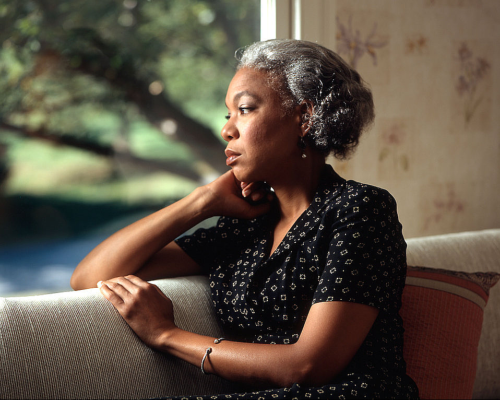When you’re childless not by choice, Mother’s Day can be a painful reminder of profound loss. For some it’s miscarriage, for others it’s infertility, and then there’s something called “circumstance,” a term with a complex set of sub-categories. My story involves all three – multiple miscarriages, long periods of apparent infertility and then a relationship with someone who didn’t want any more children. Although I gave up trying to become a mother almost two decades ago, wrangling that grief is still a daily challenge.
I’m not alone.
There are dozens of online groups for those of us who are involuntarily childless, people who sometimes feel isolated and/or invisible as a result. These forums are digital lifelines, offering a sense of belonging, a space to confide our vulnerabilities, a place to find empathy for our shared heartache. At this time of the year the posts are full of wrenchingly sad confessions about how much it hurts to not be a mother on Mother’s Day.
I am no Grinch. Communal rituals of gratitude and appreciation are important. Even though my anti-materialistic mom called Mother’s Day “Commercial Bullshit Day,” I still gave her a present every year. Just as I would never advocate canceling Christmas because many of us are non-believers, I’d never suggest we abolish Mother’s Day because many of us have been unable to fulfill our desire to have children.
Besides, the sense of exclusion experienced by involuntarily childless people is not limited to one day of the year. A high-profile tourism company is currently headlining every promotional email with the words “Family-Sized Holidays,” followed by promises to “get you and your family excited about planning your trip together.” Politicians on the election campaign trail are peppering their speeches with promises to help “working families.”
Yes, involuntarily childless people like me could unsubscribe from the promotional emails and try to avoid the election coverage, but self-exclusion would only add to our sense of isolation.
As a society we are gradually becoming more adept at acknowledging exclusion and loss. And some retailers are finally cottoning on to the inappropriateness of blanket sales campaigns. A restaurant recently emailed me using the term “Celebrate Your Hero” as an alternative to Mother’s Day. “Whether you’re spoiling your mom, auntie, or someone else special,” the blurb read, and I latched onto that word “auntie” like a lifebuoy. When a retailer emailed to ask if I would like to opt out of any Mother’s Day promotions, I jumped at the chance. But these offers are still the exception rather than the rule.
Of the 92.2 million U.S. adults ages 55 and older in 2018, 15.2 million (16.5%) are childless, defined as having no biological children. Moreover, childlessness is more common among the younger cohort of older adults. This suggests that childless adults will make up an even greater share of the older adult population in the future.
What I can do is share with you the lived experience of this disenfranchised grief, in the hope that my story might inspire empathy and understanding for others who are still grieving. In my book Childless: A Story of Freedom and Longing, I describe my seven-year-long quest to become a mother, and how that failure impacted on every part of my emotional life. And I describe all the ways in which I’ve tried to accentuate the positives in my situation. But when Mother’s Day comes around, and women all over the country are being feted by their progeny, no amount of positive psychology can override the sense of loss I feel.
An occasional acknowledgement that some of us can’t share in this communal celebration would go a long way to easing the distress.
Sian Prior is the author of Childless: A Story of Freedom and Longing and Shy (Text Publishing)











